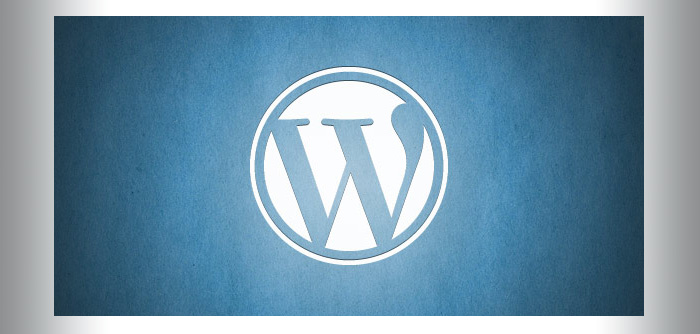Why Have A Website?
Question: Should your business have a website, even if that business is small and offers products or services you are not sure can be sold online? Our answer is the same today as it was in 2001: Yes – if you have a business, you should have a website. Period. No question. Without a doubt.
Nowadays, there’s very little that can’t be sold over the internet, so don’t be to quick to dismiss your product or service as one that can’t be successfully marketed online. Millions of e-shoppers are on the web, purchasing everything from books to computers to cars to real estate to jet airplanes to natural gas to you name it, daily. If you can imagine it, someone will figure out how to sell it online.
We’re not saying you should put all your efforts into selling your wares over the internet, although, if your product lends itself to easy online sales, you should certainly be considering it. The point to be made here is that you should at the very least have a presence on the web so that customers, potential employees, business partners and perhaps even investors can quickly and easily find out more about your business and the products or services you have to offer.
First Impressions
The above said, it’s not enough that you just have a website. You should have a professional-looking site if you want to be taken seriously. Since many consumers now search for information online prior to making a purchase at a brick-and-mortar store, your site may be the first chance you have at making a good impression on a potential buyer. If your site looks like it was designed by a barrel of colorblind monkeys, your chance at making a good first impression will be lost.
One of the great things about the internet is that it has leveled the playing field when it comes to competing with the big boys. As mentioned, you have one shot at making a good first impression. With a well-designed site, your little operation can project the image and professionalism of a much larger company. The inverse is also true. We’ve seen many big company websites that were so badly designed and hard to navigate that they completely lacked professionalism and credibility. Good for you, too bad for them.

Getting Started
There are 4 key components we have identified for new clients considering establishing a website and perhaps “storefront” on the worldwide web. Many custom web development companies (like us) offer all of these services, which are each distinctly different. Each component listed here is required to create and operate a professional website. The order in which these steps are done is important, because each component usually requires the previous step(s) be completed first:
Website Starter Checklist
Domain Name
A Top Level Domain (TLD) name is the first thing you’ll need. It is your digital address that people will use to connect to your website. TLDs such as .com, .net, .biz and .org are the most common among the many offerings that have emerged. For example, MyCompany.com would be the place to start for most businesses – the simpler the better.
Business Email Address
Avoid crushing your business credibility with free email addresses like those available at gmail.com and the rest. The first question that comes to mind is, “Wow, they can’t even afford $5 a month on a business email?” This doesn’t look very professional and creates unnecessary doubts that you really don’t need, especially if you are starting a new business. Once you have obtained a domain name, you use it to can create a business email like jonathan@ABCcompany.com.
Website Hosting
Web hosting services allow individuals and organizations to “self-host” (as opposed to cookie cutter fast-food-like “freebies”) and make their website completely accessible and expandable via the World Wide Web. These hosts are companies that provide space on a server owned or leased for use by clients, as well as providing Internet connectivity, typically in a data center. When you’re “self-hosted,” you really own your website and have full control. For serious, professional authors, businesses and entrepreneurs who are building a longterm online presence, that’s what we highly recommend.
Website CMS (Content Management System)
Many websites are still built from scratch using tools like Adobe Dreamweaver, however many CMS platforms have emerged that come with administrative online backends and pre-built coding for assembling and managing your website directly on the internet. These include packages like Drupal, Joomla, and the most popular and effective platform: WordPress. If you are not an experienced web developer we recommend having a professional build your site first and show you how to create posts, update content, etc.
Materials You Should Have Ready
- Company/business/brand Logo: A logo is a combination of text and visual imagery that serves two purposes. It tells people the name of the company and it creates a visual symbol that represents your business. Having a professional looking, well designed logo builds trust. Potential customers are more likely to do business with you if you have a well designed logo.
- High-quality Images: custom or stock photography and graphics for maximum visual impact.
- Well written Content: Clean, well-edited text content that communicate all of the essential information you want presented on your website.
- Sitemap: A simple bullet-list of sections, categories and pages you will need.
Success On The Worldwide Web!
When it comes to benefiting from a website, size does not matter. Whether you’re a one-man show or a 10,000-employee corporate giant; if you don’t have a website, you’re losing business to other companies that do.
There is ONE good exception to this rule may be that it is actually better to have no website at all than to have one that makes your business look bad. Your site speaks volumes about your business. It either says, “Hey, look, we take our business so seriously that we have created this wonderful site for our customers!” or it screams, “Hey, look, I let my 10-year-old nephew design my site. Good luck finding anything!”
 What About “Free” Website Services?
What About “Free” Website Services?
So-called “free” services are often not really free. Considered grade-school or entry-level by serious developers, these child-like builders often eventually cost you more for less, and/or force you to display unrelated and unwanted ads. They can also limit the functionality and options for your site, and how much you can customize the look and feel. Many are based on proprietary systems that could be abandoned at any time. They might not be supported in the way you need them to be. It can often be next to impossible to add extended functionalities, and for the target customer it generally gives the impression that you are not successful or committed enough to invest in professional web development. However, if you are doing a very short-lived site, or if you’re just “fooling around,” then a free service may be a useful option to consider.
Your website is an important part of your business. Make sure you treat it as such.
Thanks to Tim W. Knox, founder, president and CEO of B2Secure Inc., Digital Graphiti Inc., Sidebar Systems and Online Profits 4U – for his excellent article on the subject for the website entrepreneur.com | Spongebob Squarepants ™© Viacom International Inc.
[elfsight_social_share_buttons id=”1″]




